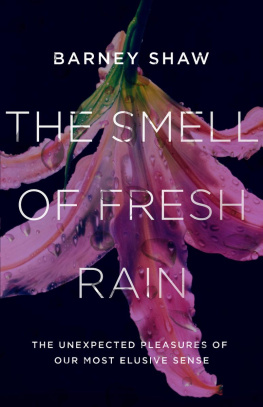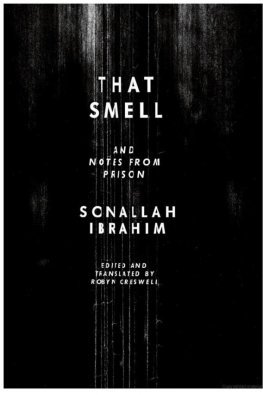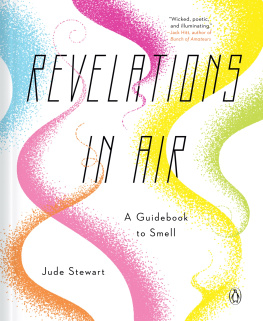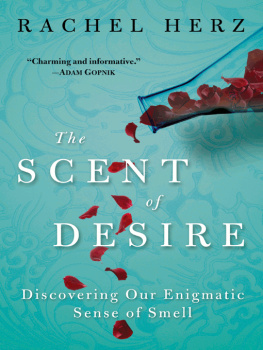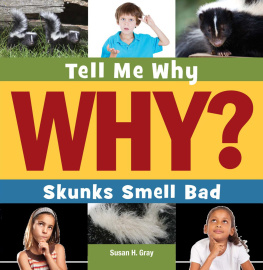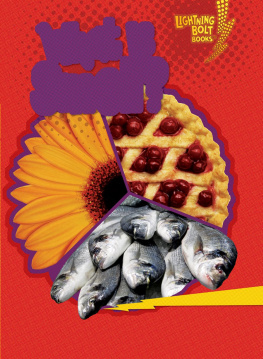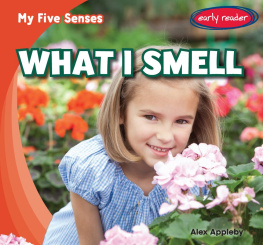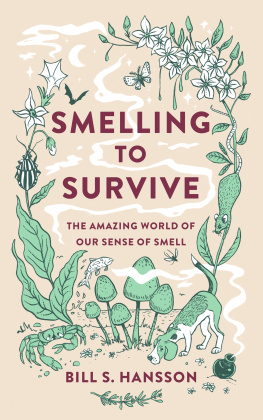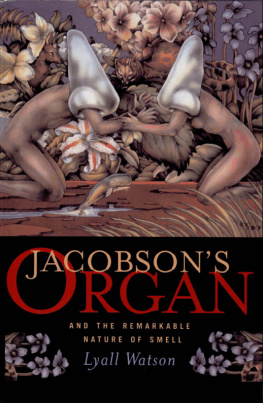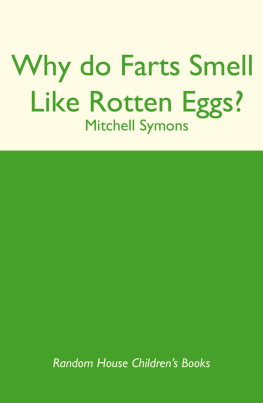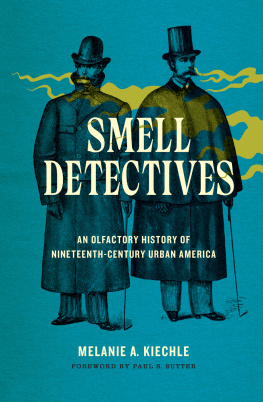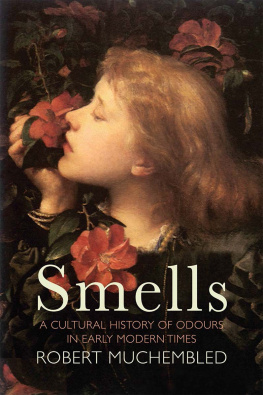In this hall the youth of Market Snodsbury had been eating its daily lunch for a matter of five hundred years, and the flavour lingered. The air was sort of heavy and languorous, if you know what I mean, with the scent of Young England and boiled beef and carrots.
P.G. Wodehouse Right Ho, Jeeves
S mells are inarticulate. We struggle to understand what they mean. We struggle to put them into words. It is common to experience what psychologists call a tip-of-the-nose effect: we sniff something; we have a fleeting sensation that we almost recognise the smell; we cannot quite pin it down; and then we breathe in a new breath and a new smell. That smell was on the tip of our noses, but, to our frustration, we did not have time to place it. Even if we can recognise it, it is hard to describe it. We do not seem have a readily accessible vocabulary to describe it, as we would if we were seeking to describe a colour or a sound. There is no common language for smells, and we are driven, like P.G. Wodehouse, to vague, hand-flapping descriptions, using phrases such as sort of heavy. Or we resort to feeble tautologies such as these capers smell caperish. Or we use grand but uninformative words that disguise our inarticulacy like indescribable, characteristic, unmistakable, evocative, insidious.
It is not that the sense of smell has only dull things to tell us. It is not like a kick on the shin, which our sense of touch instantly recognises as a kick on the shin, and our memory tells us will get worse before it gets better and there is no more to be said about it. Smells have meanings. They are often charged with emotion. They are often full of nostalgia. They bond us to our nearest and dearest. They often seem to be curiously related to the smell of something quite different, which ought not to smell the same, as if there were connections between things that are hidden and inner meanings that are not obvious to the eye. They sometimes give us a shock of familiarity, or a shock of unfamiliarity. Occasionally a smell will transport us to our distant past to our first school playground or a warm day in some childhood room and will bring it alive more vividly and insistently than our other senses can. We often want to pin down what the smell is of, what it is like, what point in our lives it harks back to. The meanings are frustratingly close to hand but difficult to bring to mind.
It is not that smells give us no pleasure. Think of some of the delightful aromas of cooking: of newly baked bread, of grilling on charcoal, of the full-blooded smell of a delicatessen with salamis and cheeses and marinated olives. Think of the smells of cleanliness: of clean linen, of ironing and airing cupboards, of beeswax polish. Think of the scents of Christmas: of mandarin oranges and pine needles and roasting chestnuts. Think of the smells of summer: of beaches and suntan lotion, of mown grass and hay. Think of all the varieties of smoke: the smoke of autumn bonfires, of winter coal, of cigars, of barbecues. Think, should it be your pleasure, of the special smells of very new babies or very old cars, of a timber yard or a building site, of a pub. The variety of delightful smells is almost limitless, and the human nose, however modest we may feel about our olfactory powers, is an instrument of exceptional discrimination.
Many of us are diffident about our ability to detect smells. We might assume that our sense of smell is poor, and that we are defective in this domain. We tend to assume that it takes a special creature a sniffer dog or a perfume expert to make sense of smells. We tend to be puzzled by smells and to feel that it is beyond us to understand them properly. But if we do this, we do not give our noses the credit they deserve. Most of us have noses that are really rather brilliant, that can detect minute traces of chemicals that are too tiny to be visible or audible or touchable. Without knowing it, we are using our noses every day to interpret the world around us in the finest detail, and we are unconsciously discriminating between aromas with the greatest subtlety.
I have lived with my sense of smell for years without understanding what it tells me. Instead, I have been puzzled in many different ways. It was a puzzle to me to find a simple smell transporting me 40 or 50 years back in time, instantly and vividly at a single sniff. It was a summer afternoon a couple of years ago. I stepped outside to the smell of fresh rain. A summer shower was falling. Fat rain drops landed on warm tarmac and earth. The gutters were running with water, in which unusually fat bubbles wobbled towards the drain. Rafts of leafy material, the casings of leaves newly shed by lime and plane trees along the street, wavered along with the water and here and there formed temporary dams. The air smelled of rain on newly moistened earth and leaves, a smell which instantly transported me to my childhood.
I was back in that suburban street where my parents had their house, where 50 years ago the fat raindrops of a summer shower made unusually fat bubbles wobble down a similar gutter towards a similar drain. Not only did the smell remind me of the smell all those years ago, not only did it remind me of the look of that childhood street the fat bubbles and the grey-green granite kerbstones and the Ford Zephyr parked in the street. It revived also in the same instant an internal memory bringing all the senses into action the sensation of being seven years old, close to the wavering bubbles, with bare knees and scratchy woollen clothes. Like a seed that lies dormant underground for decades until brought to the surface by a plough, the olfactory memory lies dormant in our heads until a passing whiff makes it germinate. The memories of smells seem to last longer and emerge fresher than memories of sights or sounds, while those senses give us memories that become muddled and faded over time, and do not carry so powerful a charge of recollection and meaning.
There are more puzzles about the sense of smell. I have been puzzled that there are many smells which give a nudge of recognition, but which, unlike the scent of fresh rain on warm earth, cannot be placed. The smells of the street, for instance, waft a succession of changing aromas into my nose as I walk along, aromas which I am on the verge of recognising, which are on the tip of my nose, which might be perfume or privet or catmint or fox or rubbish bin, but are just out of reach. It is as if my sense of smell is not quite alert enough to interpret the scents as they waft into and out of my nose, as if it is always just below the level of conscious attention. It is a puzzle that, although my brain is interested in recognising such smells, and is equipped to do so, it does not know how to speak the language of smells. I want to know whether my sense of smell is simply incapable of speaking that language, or whether it is a matter of practice and effort to do so.
I have been puzzled that there are aromas many of them which I can recognise at a sniff, and can successfully place, but I cannot describe. I think, for instance, of bracken: the archetypal smell of damp common land in the British Isles, a fragrance that is strong and distinctive and moving. I can recognise the scent of bracken without hesitation; it makes me think straight away of the fringes of open hills and moors where it grows. But I cannot find the words that fit the smell of bracken and distinguish it from the smell of other green things. More than that, I cannot summon up the smell of bracken in my head. The scent of bracken is more evocative than the sight of it, but whereas I am able to summon up the look of the thing, I am unable to summon up the smell. I can visualise a single frond or a hillside of bracken; I can summon up the feel of running a frond of bracken through my fingers; but the smell is just out of reach.

